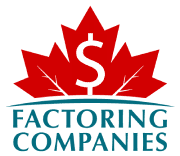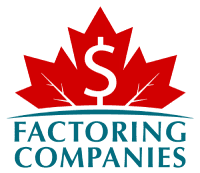
Invoice factoring is often appreciated as a simple and effective way to obtain business funding. However, there’s much more to it than this. It can streamline small business collections, too. Give us a few minutes, and we’ll walk you through how it can help you save time, collect faster, and boost overall collections below.
Introduction to Factoring
Before we dig into factoring’s role in small business collections, let’s take a quick look at what factoring is and how it works.
Factoring Overview
Factoring is a financial service that helps businesses manage their cash flow by selling their unpaid invoices, also referred to as accounts receivable, to a third-party company, known as a factor or factoring company. In exchange, the business receives a percentage of the invoice value upfront—usually around 60 to 95 percent—with the remainder, minus the factor’s fees, paid when the customer settles the invoice. This allows businesses to access cash quickly, which can be vital for maintaining operations, paying employees, or investing in growth without waiting for their customers to pay.
In Canada, factoring is particularly valuable for small businesses with longer payment terms, such as net 30, 60, or even 90 days. This is especially common in industries like manufacturing, transportation, and construction, where payment delays can cause significant cash flow issues.
Types of Factoring
When it comes to collections, the type of factoring can have a significant impact. Here are the two main types: recourse and non-recourse factoring.
Recourse Factoring
With recourse factoring, the business remains responsible if a customer does not pay their invoice. If the customer defaults, the factor can recover the advance from the business, making this a lower-cost option. However, the business must still manage any bad debts. For businesses with established customer relationships and predictable payments, this can be a good option to reduce factoring fees while still supporting cash flow.
Non-Recourse Factoring
Non-recourse factoring shifts the risk of non-payment to the factor. If a customer does not pay the invoice, the factor absorbs the loss, not the business. While this is more expensive due to the added risk for the factor, it’s an attractive option for businesses that want to focus solely on growth and collections management without worrying about the potential for bad debts.
How Factoring Impacts Small Business Collections
Now that we’ve covered the basics, let’s explore how factoring impacts collections.
Collections Before Factoring

For small businesses, managing collections without factoring can be a significant challenge, particularly when dealing with longer payment terms such as net 30, 60, or even 90 days. In this traditional setup, businesses often find themselves having to chase payments, which can be time-consuming, taking an average of 14 hours per week, according to Intuit. It can also strain relationships with customers. Small businesses typically rely on their internal team—often not specialists in collections—to follow up on overdue invoices.
There are several risks involved with this approach:
- Cash Flow Instability: When payments are delayed, small businesses may struggle to cover operating costs, pay staff, or invest in growth opportunities.
- Inconsistent Collections: Businesses may not have the resources to dedicate to consistent follow-ups, leading to prolonged payment delays.
- Risk of non-payment: If customers are unable or unwilling to pay, the business bears the full risk, often writing off bad debts that directly impact the bottom line.
For example, a small Edmonton trucking company with a handful of clients might face long delays between completing a job and receiving payment while still needing to pay drivers, fuel costs, and other overhead. Chasing late payments can become a full-time job, taking focus away from operations.
How Factoring Changes Collections
When a business opts for factoring, the responsibility for collecting payments shifts to the factor. By selling their invoices, the business essentially transfers the work of chasing payments to a specialized third party. The immediate benefit here is access to cash without the wait, but there’s a bigger shift in collections management. With the support of debt recovery factoring services, businesses can streamline payment follow-up while protecting customer relationships and reducing internal strain.
With factoring, businesses no longer need to dedicate resources to sending reminders, making calls, or following up on overdue payments. Instead, they can focus on core operations, knowing that professionals are handling the collections process. This is particularly important for small businesses that don’t have the manpower or expertise to run an effective internal collections system. Factoring also helps reduce the stress of dealing with difficult or non-communicative customers since the factor steps in as the intermediary.
For instance, a small food manufacturer in Quebec might have $100,000 tied up in outstanding invoices from various clients. Factoring allows the business to sell those invoices, receive most of the cash upfront, and let the factor handle the collections process. This frees up the business owner to focus on new production rather than worrying about unpaid invoices.
The Role of the Factor
The factor’s role in collections goes beyond simple follow-ups. As professional collectors, they often have better systems in place to track and pursue payments efficiently. Factors can use automated reminders, formal collection processes, and more to ensure customers pay on time. The goal is to collect payments as quickly as possible while maintaining positive relationships with customers.
One significant difference between a factor’s approach and internal collections is the leverage that factors have. Since they specialize in accounts receivable management, they are more experienced in handling disputes or difficult customers. Many factors will assess the creditworthiness of a business’s customers before agreeing to buy invoices, meaning they can predict which customers might pose a risk and prepare accordingly.
Additionally, in non-recourse factoring, the factor bears the risk of non-payment. This means the factor has an even greater incentive to secure payments, using all the tools and techniques at their disposal. This represents a major relief for small businesses, knowing that experts in the field are managing their customers.
Factoring’s Benefits for Small Business Collections
Because of the unique way factoring works, it’s much more than a business funding solution. Let’s take a quick look at some of the ways your business collections can benefit.

Improved Cash Flow
One of the biggest advantages of factoring for small businesses is the immediate improvement in cash flow. In industries with long payment terms—common in Canada’s manufacturing, construction, and transportation sectors—waiting 30, 60, or even 90 days for customers to pay can create a financial bottleneck. Factoring eliminates this delay by providing businesses with most of an invoice’s value upfront as soon as they sell their invoices to a factor.
This instant access to cash reduces the dependency on waiting for customers to pay, ensuring that businesses can meet their own financial obligations on time. They can pay their employees, purchase materials, and cover operational expenses without stress. Improved cash flow is particularly crucial for small businesses with limited access to traditional financing options like bank loans, where long approval processes and strict credit requirements often pose challenges.
For example, a small construction company working on multiple projects across Vancouver at once might rely on factoring to cover immediate costs like materials and labour. Instead of waiting 60 days for customer payments, the company can receive a large portion of the invoice value upfront, allowing them to take on new contracts without hesitation.
Reduced Bad Debt Risk
Factoring companies run credit checks on the businesses responsible for paying the invoices before an advance is made. They provide their clients with the results of these checks and guidelines for extending trade credit. This helps ensure credit is not extended in the event a business is unlikely to be able to pay, thus protecting the business from bad debt.
Non-recourse factoring provides another layer of protection for businesses that face higher risk. Again, this type of factoring agreement means that if a customer fails to pay their invoice, the factor assumes the loss rather than the business. For companies that operate with tight margins, this can be transformative, as it eliminates the financial burden of unpaid invoices.
This is particularly important in industries where clients’ financial situations may change rapidly, increasing the likelihood of non-payment. By opting for non-recourse factoring, small businesses can feel secure knowing that even if a customer defaults, they won’t be left with a significant financial loss.
Focus on Business Growth
Outsourcing collections to a factoring company allows small businesses to focus on what matters most: growing the business. Collections can be time-consuming and stressful, especially for smaller companies that lack the internal resources or expertise to manage overdue payments effectively. By selling invoices to a factor, the business no longer needs to dedicate time or staff to chasing payments or handling disputes.
With the burden of collections lifted, small business owners can redirect their attention to scaling operations, improving customer service, and exploring new growth opportunities, all of which benefit from structured financial planning that supports long-term cash flow health. Whether it’s investing in marketing, expanding product lines, or hiring additional staff, businesses can use the time and resources saved by outsourcing collections to build a stronger, more competitive operation.
For instance, a small manufacturer that regularly uses factoring might take advantage of the steady cash flow to expand its production capacity. Knowing that collections are handled by the factor, the business can confidently pursue larger orders and be secure in the knowledge that they won’t face cash flow problems or collection delays.
Challenges and Considerations in Factoring
Despite all the benefits, it’s important to understand some of the challenges you might experience while factoring and how to address them.
Costs of Factoring
Factoring comes with fees and charges that can impact overall collections, and it’s important for small businesses to understand these costs before committing. Typically, factors charge a percentage of the invoice value, known as the factoring fee, which usually ranges from one to five percent depending on the risk, payment terms, and the type of factoring (recourse or non-recourse). There may also be additional fees for administrative costs, collections management, and credit checks on customers.
While these fees reduce the overall amount a business receives from each invoice, factoring still provides value by accelerating cash flow and removing the burden of chasing payments. To offset the cost of factoring, businesses can take a few strategic steps:
- Negotiate Terms: Some factors offer flexible terms, and businesses with a strong track record or low-risk customers may be able to negotiate lower fees.
- Weigh the Trade-Offs: Compare the cost of factoring to the potential costs of cash flow gaps, late payment penalties, or bad debts. For many businesses, the cash flow stability that factoring offers outweighs the costs.
- Limit Factoring Use: Businesses can selectively factor high-value or long-term invoices instead of factoring every invoice, reducing the overall cost while still gaining the benefits of improved cash flow.
For example, a Brampton freight company might only factor invoices from clients with notoriously long payment terms, ensuring cash flow without factoring every invoice and paying unnecessary fees.
Customer Relationships
One challenge with factoring is the potential impact on customer relationships. When a third-party factor takes over collections, customers may notice the change in who’s managing their payments. This can create a sense of distance, as businesses are no longer handling collections in-house, and in some cases, customers may feel less comfortable dealing with a third party. However, this issue can be addressed by:
- Choosing the Right Factor: Work with a reputable factor that values professionalism and customer service. Many factors understand the importance of maintaining positive customer relationships and will handle collections in a way that reflects well on the business.
- Transparency: Let customers know upfront that a factor will be managing their invoices and collections. Clear communication can prevent any misunderstandings or discomfort.
- Maintaining Involvement: Even though the factor handles collections, the business can stay in touch with customers, reinforcing their relationship outside of the invoicing process. For instance, continuing regular communication on projects, updates, and other non-financial aspects ensures that the customer still feels connected.
For example, a manufacturer in Toronto can inform their long-term clients that they’re using factoring to streamline cash flow but emphasize that it doesn’t change their commitment to service quality. This way, customers are prepared and more likely to accept the change.
Qualification for Factoring
Factoring isn’t available to every business, as factors usually have qualification criteria. To be eligible, businesses must generally meet the following conditions:
- Outstanding Invoices from Creditworthy Customers: The factor is primarily interested in the customer’s ability to pay, so businesses with a client base that has a history of late or missed payments may struggle to qualify.
- Solid Invoicing Practices: Businesses need to have accurate, detailed invoices with clear payment terms. Factors will review the invoicing history to ensure that collections aren’t delayed due to poor documentation or disputes.
- Established Customer Relationships: Companies that work with new or unknown customers may not be able to qualify, as the factor won’t be able to assess the client’s payment risk effectively.
For businesses that struggle with ongoing collection issues, there are ways to improve eligibility for factoring:
- Improve Customer Vetting: Start by ensuring that customers have a good credit history and that they meet basic standards for payment reliability before extending long-term payment terms. Factors will see this as a sign of a well-managed business.
- Offer Shorter Payment Terms: To reduce risk, businesses can tighten payment terms on their invoices before factoring, demonstrating better control over collections.
- Use Recourse Factoring: Businesses with less stable customers may still be able to qualify for recourse factoring, where your company assumes the risk of non-payment. While this increases risk for the business, it can still provide cash flow support without disqualifying the business entirely.
Improve Your Small Business Collections with Factoring
If you’re ready to improve your small business collections with factoring, we’re happy to match you with a factoring company that understands your business, offers competitive rates, and will treat your customers as if they’re their own. Request a complimentary rate quote to get started.
FAQs on Small Business Collections and Factoring
Can factoring help small businesses collect payments faster?
Yes, factoring accelerates cash flow by providing an advance on unpaid invoices, typically 60 to 95 percent upfront. The factor then collects the payment from the customer. This eliminates the need to wait 30, 60, or even 90 days for payment.
What role does a factoring company play in collecting invoices?
A factoring company takes over the collections process for the invoices they’ve purchased. They use their resources and expertise to follow up with customers, send reminders, and ensure timely payments, reducing the burden on small businesses.
How does factoring reduce the risk of bad debts in collections?
Factoring companies perform customer credit checks, so it’s easier to make informed decisions when extending trade credit. Non-recourse factoring protects small businesses from bad debts. In this arrangement, if the customer fails to pay, the factor absorbs the loss, reducing financial risks for the business.
What’s the difference between direct collections and factoring for small businesses?
Direct collections require the business to manage payment follow-ups, which is time-consuming. Factoring outsources this process to a professional factor, improving efficiency and allowing businesses to focus on operations rather than collections.
How does using factoring impact customer relationships during collections?
Factoring can create some distance between the business and its customers, as the factor handles payments. However, working with a professional, customer-friendly factor and clear communication can maintain positive relationships.
Does factoring eliminate the need for small businesses to chase payments?
Yes, factoring removes the responsibility of chasing payments, as the factor takes over collections. This allows small businesses to focus on growth without worrying about overdue invoices.
What are the qualifications for small businesses to use factoring for collections?
To qualify, businesses typically need outstanding invoices from creditworthy customers and a clean invoicing process. Factors assess customer payment risk, so reliable customers are important for approval.
Can small businesses still manage customer relationships while using a factoring company for collections?
Yes, even though a factor manages collections, small businesses can maintain customer relationships by staying in contact regarding non-financial matters, ensuring clients feel valued beyond the invoicing process.

About Factoring Companies Canada
Related Insights
Get an instant factoring estimate
Factoring results estimation is based on the total dollar value of your invoices.
The actual rates may differ.
CLAIM YOUR FREE FACTORING QUOTE TODAY!
PREFER TO TALK?
You can reach us at
1-866-477-1778
Get an instant factoring estimate
Factoring results estimation is based on the total dollar value of your invoices.
The actual rates may differ.
CLAIM YOUR FREE FACTORING QUOTE TODAY!
PREFER TO TALK? You can reach us at 1-866-477-1778











